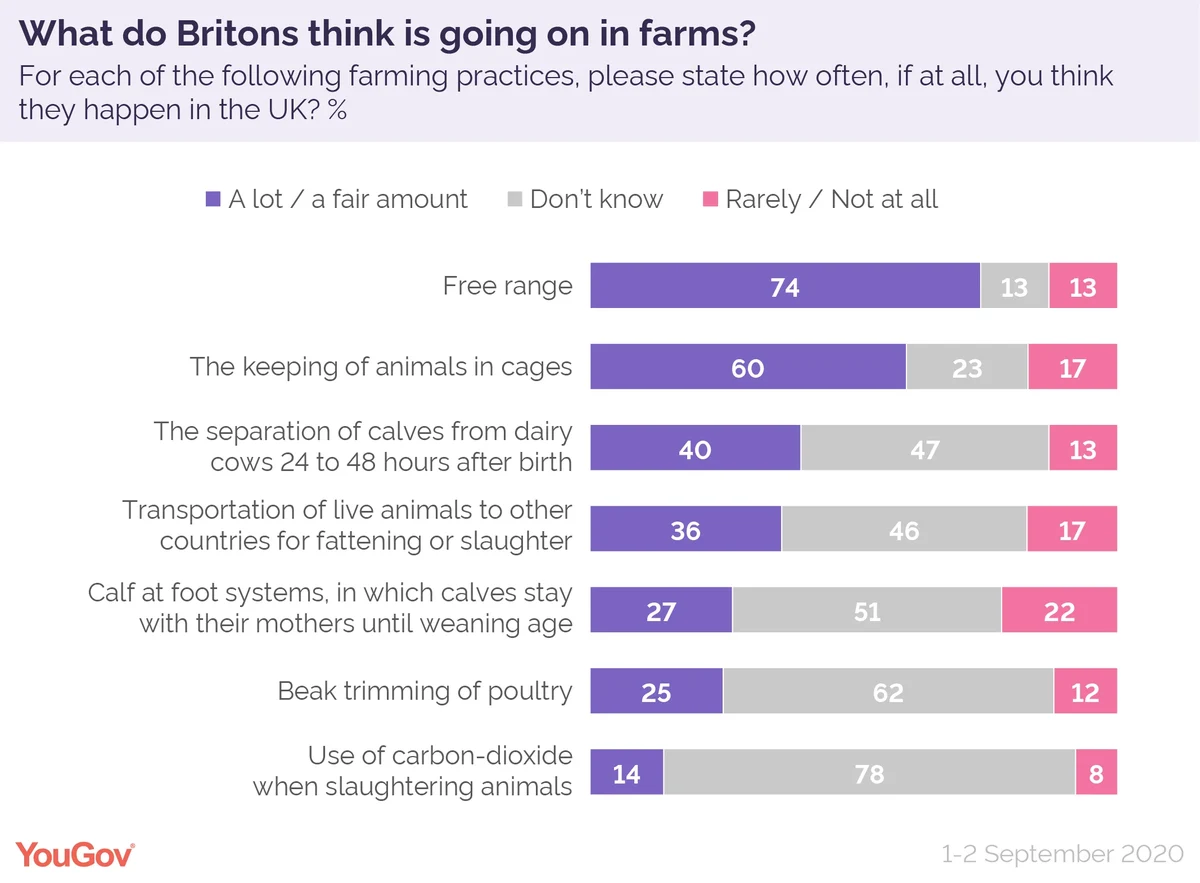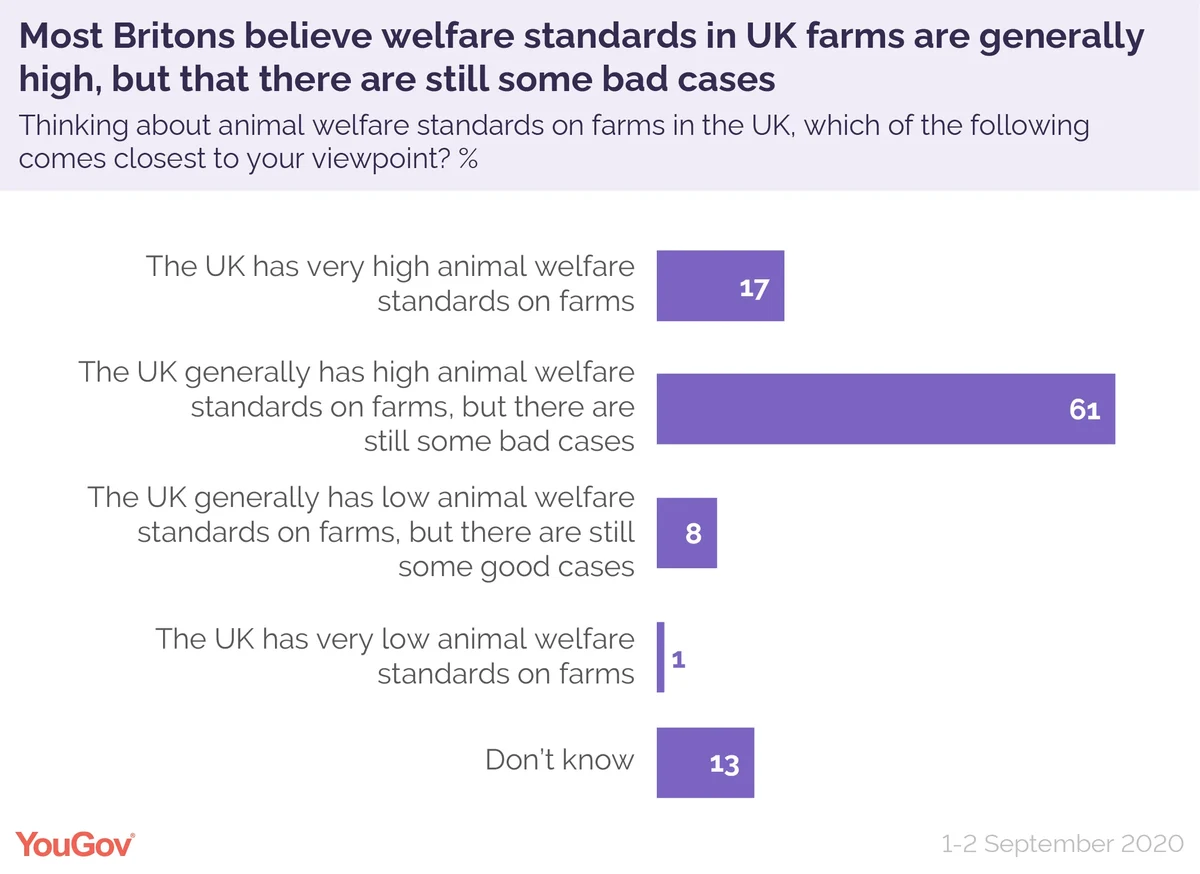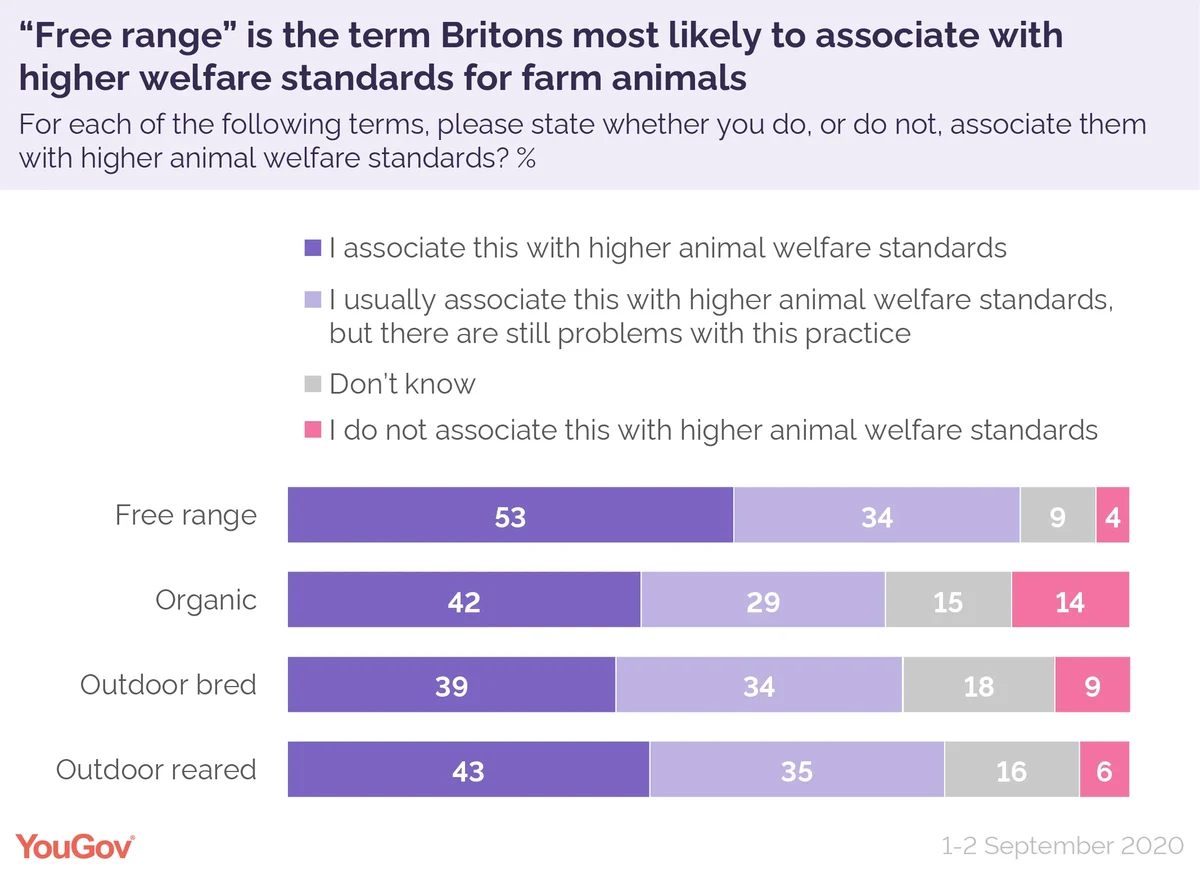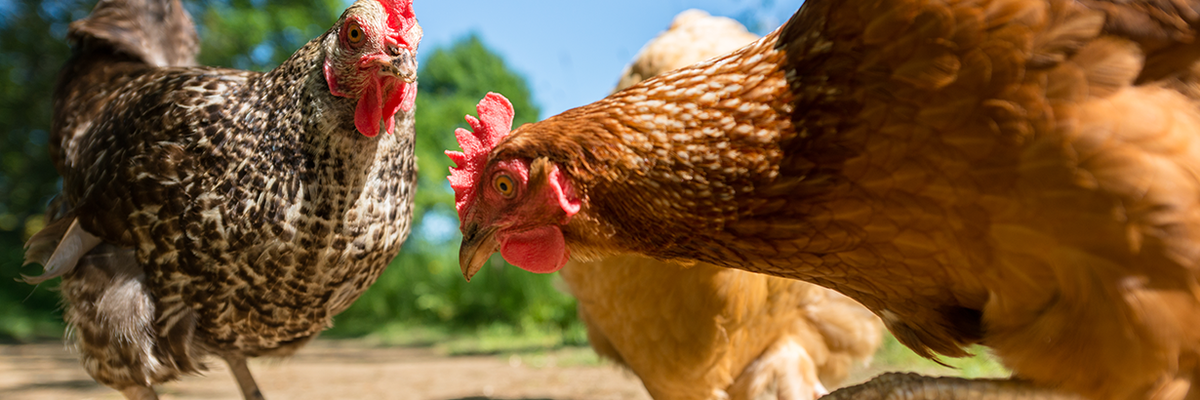Many Brits don't know what's going on in the nation's farms
With US-UK trade talks calling into question the future of UK food and animal welfare standards, a new YouGov survey looks at public opinion towards current UK farming practices.
We know that Brits don’t find chlorinated chicken acceptable, but how well do Brits know about what’s going on here in the UK?
A majority of the public think free range is common on UK farms, but also that animals are frequently kept in cages
Of seven agricultural practices we asked about, Britons think free range most commonly occurs on UK farms, with almost three quarters (74%) stating that they think it happens a lot or a fair amount.
But whilst a clear majority of the public think free range happens often, 60% also think that animals are also frequently kept in cages on UK farms. And roughly the same proportion of Brits think that both free range (20%) and the keeping of animals in cages (21%) happens a lot.

Most Britons don’t know how common practices like beak trimming, separation of calves from their mothers, and use of carbon dioxide in slaughter are
For the further five farming practices asked about, the public were most likely to answer that they don’t know how widespread they are. In the UK, it is common for pigs and poultry to be stunned with carbon dioxide in slaughter, which was the practice that Brits were least likely to think happens a lot or a fair amount (14%), and similarly the practice that most were uncertain about (78%).
Following this, a vast majority of Brits (62%) were unsure how often beak trimming occurs. Beak trimming is considered common practice in the UK, but just a quarter (25%) think it happens a lot or a fair amount. One in eight (12%) think it happens rarely, or not at all.
On dairy farms, calves are usually separated from their mothers between 24 and 48 hours after birth. Almost half (47%) said they don’t know how often the separation of calves from dairy cows happens on UK dairy farms. Four in ten respondents (40%) think that this practice happens a lot or a fair amount.
By comparison, just over a quarter (27%) think calf at foot systems (in which calves stay with their mothers until weaning age) happens frequently or fairly often.
According to the European Commission, in 2017 around 80,000 live animals were transported to the EU for fattening or slaughter, whilst almost half (46%) of Brits don’t know how frequently live transports of animals abroad occur. Just over a third of Brits (36%) think that this happens a lot or a fair amount
One in six Britons think that UK farms have very high animal welfare standards
Around one in six Britons (17%) think that UK farms have very high animal welfare standards, which drops to 5% of vegetarians and vegans. The majority (61%) think that, in general, UK farms have high animal welfare standards but that there are still some bad cases.

“Free range” is the farming practice that Britons are most likely to associate with higher animal welfare standards, with 53% making this connection.
Following this, 43% of the public associate “outdoor reared”, where the animal was reared in outdoor systems for around half of their life, with better animal welfare standards.
“Organic” indicates that the animal hasn’t been given any antibiotics or growth hormones, and just under half of Brits (42%) associate organic meat and animal products with higher animal welfare practices.
Finally, almost four in ten Brits (39%) associate “outdoor bred” (where the animal was born outside and brought inside for growing) with higher animal welfare standards.

Majority of British public support labelling meat products indicating how the animal was raised and slaughtered
With labels such as outdoor reared, outdoor bred, free range and organic being relatively common on certain produce, our survey found that over half the public (55%) support labelling meat products to indicate how the animal had been raised and slaughtered. This figure jumps to 87% amongst vegetarians and vegans, with still a majority of meat eaters in support of such a measure (54%).
















